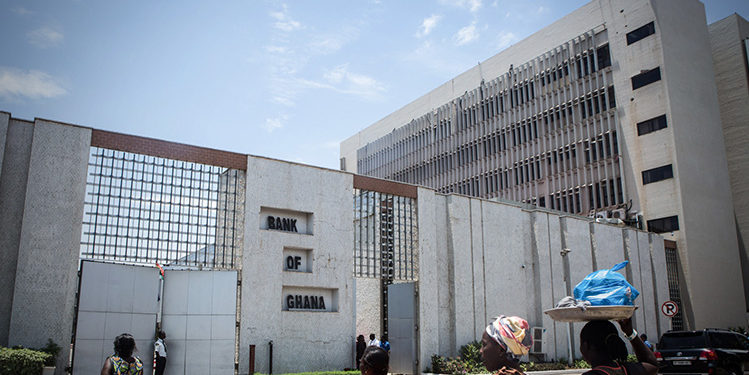Ghana Inflation at Eight-Month High Reduces Rate Cut Chance
Ghana’s annual inflation rate climbed to its highest level in eight months in December, reducing the prospects of an interest-rate cut later this month.
Consumer prices rose 23.8%, from 23% in November, Government Statistician Samuel Kobina Annim told reporters in the capital, Accra, on Wednesday. He attributed the quickening to higher prices of vegetables and cooking bananas.
Food inflation accelerated to 27.8% from 25.9% and non-food price growth decelerated to 20.3% from 20.7%. Prices rose 1.8% in the month.
“For the central bank it will be too early to start cutting rates,” because a new government headed by John Mahama that took office on Tuesday has yet to spell out its strategy or deliver its first budget, Godfred Bokpin, an economist at the University of Ghana Business School, said ahead of the release.
In addition, a financing program Ghana agreed with the International Monetary Fund in 2023 will likely require it to maintain tight monetary policy to bring inflation down further, he said.
The cedi has gained about 4% against the US dollar since the central bank held rates on Nov. 29 last year and traded 0.2% weaker at 14.74 per dollar at 11:17 a.m. in Accra.
The central bank maintained its key borrowing rate at 27% in November after cutting it by 200 basis points in September, mainly due to the slower-than-anticipated pace of disinflation. A stronger US dollar and the possibility of energy and food prices rising due to trade protectionism and geopolitical conflicts are among the risks to the inflation outlook, Governor Ernest Addison said on Nov. 29.
The central bank, which will announce its next interest rate decision on Jan. 27, expects inflation to fall to within its 6% to 10% target band in the fourth quarter. It averaged 23% last year.








